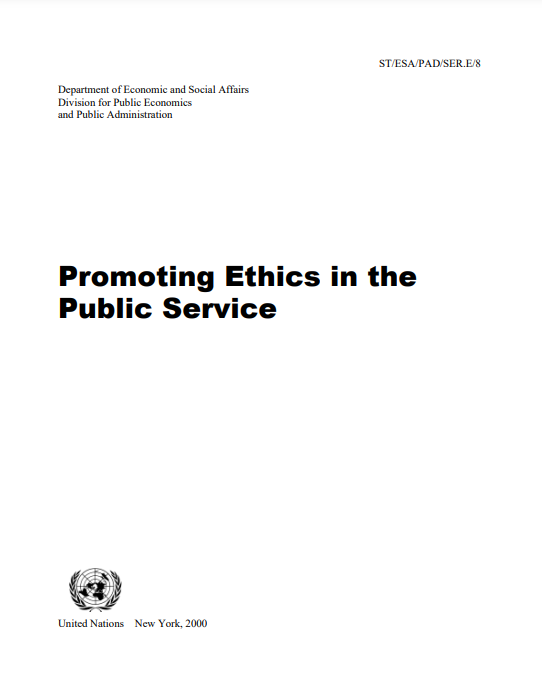
Ethics is gaining prominence in the discourse about governance today. There is a perception that standards in public life are in decline. This raises questions about the costs of misconduct on the part of those who have been entrusted with guarding public interest and resources. These costs are losses in trust and confidence in public institutions and losses in precious resources which were meant to support the economic and social development of nations and peoples. There is a move worldwide to restore a measure of trust and integrity in public institutions and officials, to safeguard democracy and promote better governance. Like many other countries, Brazil is currently reexamining the role of the state, after having launched a reform of the state in 1995. As part of this exercise, Brazil has also been making a conscious shift towards a managerial administration, with a greater results-orientation than its previously legal-rational model. It has been modernizing the public service, emphasizing quality service, performance and professionalism. Given this overall context, the Government of Brazil considered ethics in the public service to be a timely issue. The integrity of public servants has a direct bearing, not only on their performance but also on public perception of government credibility.
 مرحباً بكم في الأمم المتحدة
مرحباً بكم في الأمم المتحدة 